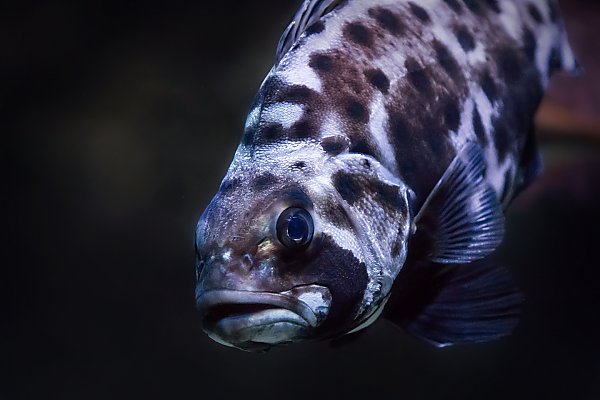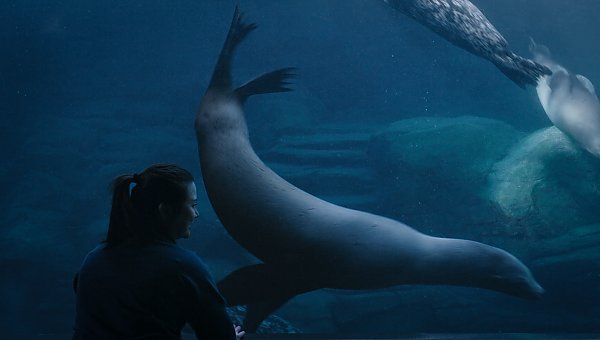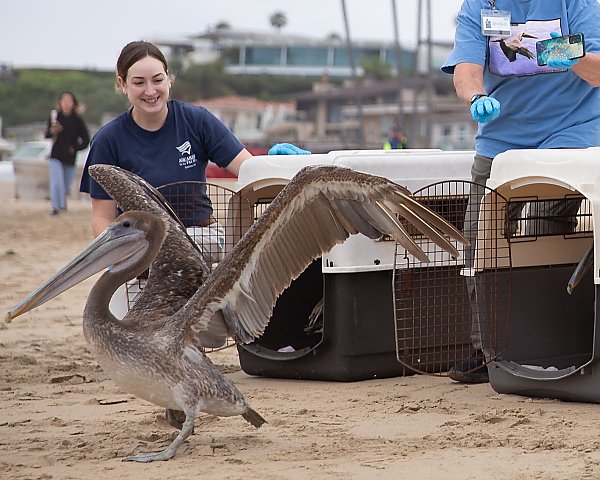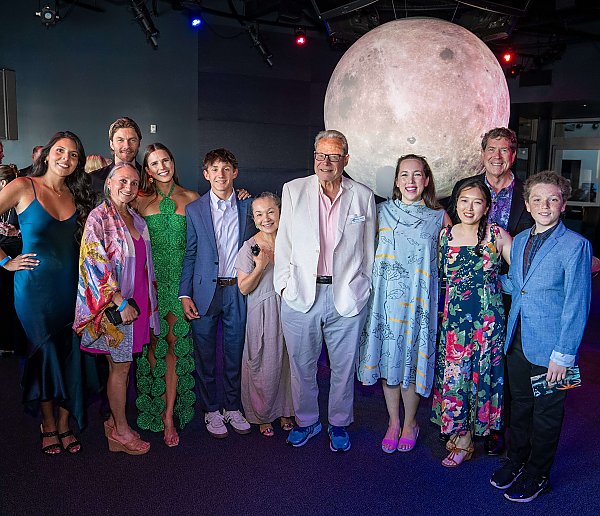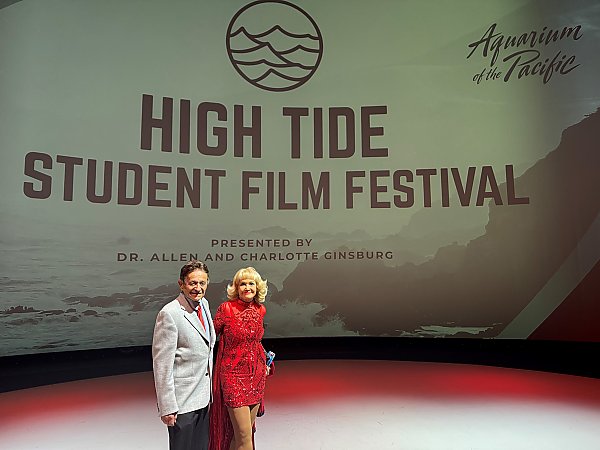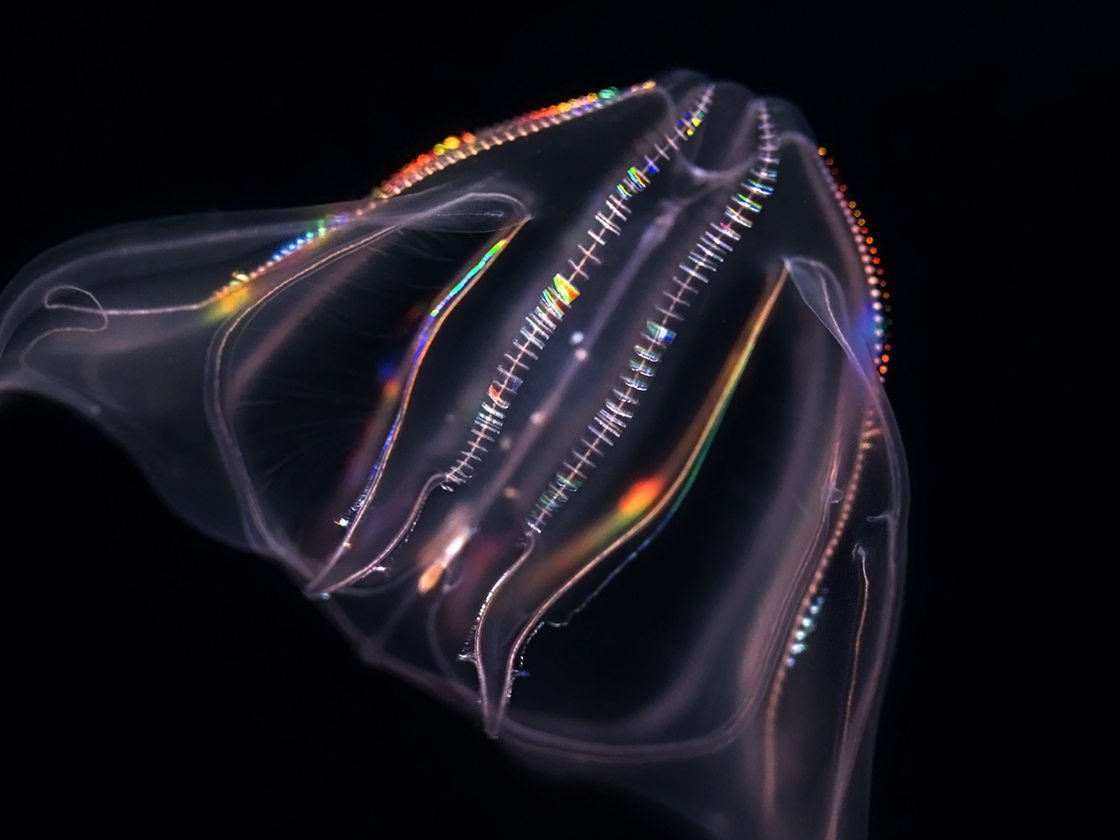Remembering Yutaka
Aquarium staff is mourning the loss of Yutaka the giant sea bass.
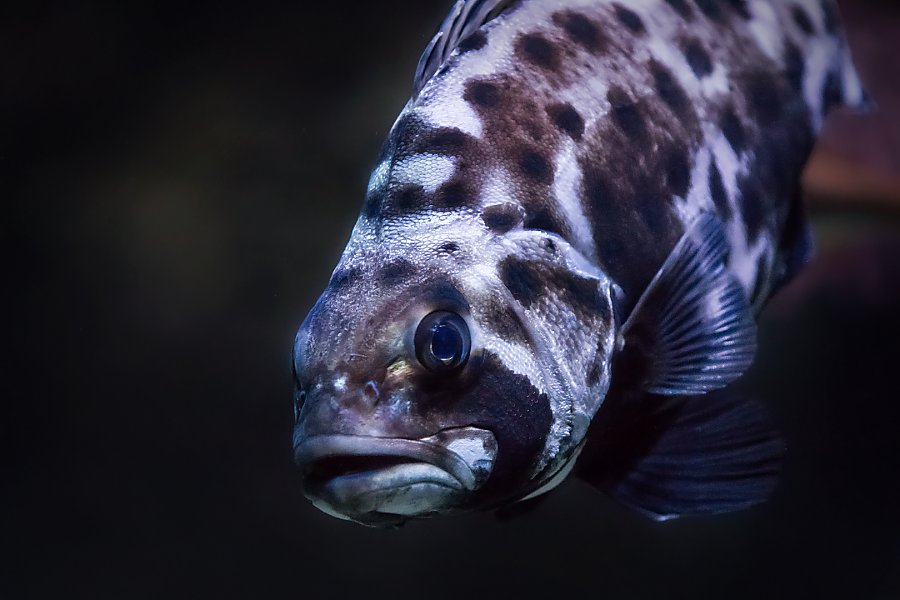
Credit: Robin Riggs
July 19, 2024
Aquarium staff is mourning the unexpected loss of Yutaka the giant sea bass, who passed away on July 17. “As the first of his species successfully hatched and raised at a public aquarium, he was loved, especially by those who raised him and watched him grow over the years. Yutaka holds a special place in our hearts,” said Nate Jaros, Aquarium of the Pacific senior director of fish and invertebrates. “Yutaka was about less than a centimeter long when he was hatched in 2016 and grew up to approximately sixty pounds at the Aquarium. He will be greatly missed.”
Yutaka was found unresponsive in his habitat, and Aquarium staff did everything possible to save him, responding with immediate medical care. Despite all efforts, the beloved fish passed away. A necropsy exam was conducted, and the Aquarium is awaiting any additional findings to help determine cause of death. Giant sea bass are an endangered species found in the Northwest Pacific Ocean from Humbolt, California to the Gulf of California. The Aquarium has been part of a program to help breed, rear, understand, and restore this important local kelp forest species. Yutaka’s successful birth represented a monumental step in these efforts.
